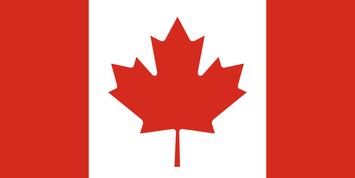The Federal Government’s Crown Corporation, Export Development Corporation (EDC), is in a big problem because it invested in a mining company, Turquoise Hill. Unfortunately, Turquoise Hill transferred a considerable amount of money offshore to minimize the taxes it pays to Canada. Also, EDC lent the company seven hundred million dollars, or nearly 1.5% of its assets.
EDC’s mission is to aid Canadian exporters by financing international trade and helping Canadian firms operating abroad. The latest data show that EDC has 5,749 clients. Most often, EDC funds ventures that are much too risky for commercial banks to handle such as high-risk mining projects.
There are, however, only a few counties that are considered to provide a safe environment for investing, uncorrupt, honest, and transparent as judged by the World Bank and Transparency International. Mongolia, where Turquoise Hill now operates, is, in fact, unreliable.
Of course, this is not the only company to “borrow” money from EDC for high-risk projects. At present, EDC is trying to repossess a Bombardier executive jet from the Gupta brothers, deadbeat cronies of the recently ousted president of South Africa. While this single plane is only worth about $52 million, EDC is exposed to billions of dollars, and 15% of EDC’s portfolio is now invested in the risky and politically influenced aerospace sector.
Bombardier is by far the largest client of EDC, and it has received billions of dollars from the federal and Quebec governments. It continues to be favored by EDC.
Financing foreign investment outside of Canada is an important mission of EDC. There are always political considerations that must be taken into account, and Mongolia is only one of the many risky countries where EDC has risky investments.
Most EDC clients are not in and do not intend to work in lawless, corrupt or dangerous countries. Yet, even stable advanced countries can be difficult to navigate for naïve Canadians. Import restrictions, product standards, logistics, labelling, and language issues complicate international trade and investment,
Merely being paid for goods and services, and not having foreign assets damaged, destroyed, stolen, or confiscated, is almost impossible in many countries. Ensuring that officials do not make illegal demands is nearly unavoidable in many countries. Multinational companies often spend millions of dollars on consulting and lobbying firms, effectively much of this is graft payment.
EDC plays in a squalid pit, but with Canadian money, and so controversies such as the one with Turquoise Hill are inevitable. While EDC recently sent a multi-million-dollar dividend payment to Ottawa, its true risks may not be fully reflected in its financial reporting.
EDC has over 63 billion dollars in assets and over 9.8 billion dollars in book value, so it would be a good company to privatize. This Crown Corporation is solidly profitable, growing, and has a fairly consistently and very low loan loss ratio (under 1%). Thus, there are very good reasons to put this worthy, but risky, corporation into the private sector.



